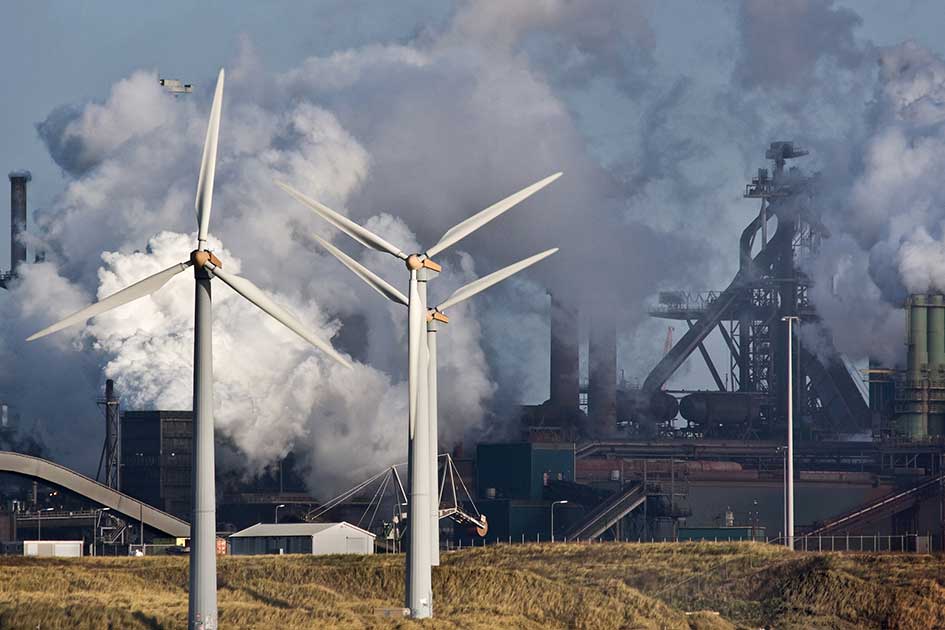Industry Transformation
Building PolicyFrameworks for a SustainableIndustrial Sector
Technical, economic and political innovations are vital if the industrial sector is to become climate-neutral by 2045. A transformative industrial policy will establish the conditions needed to support these efforts. The Wuppertal Institute develops recommendations and provides advice to support the relevant political processes – both nationally and internationally. As a principal emitter of greenhouse gases and driver of resource consumption, the basic materials sector is a key area of focus.
Fulfilling the Paris Agreement’s climate targets and the UN Sustainable Development Goals (SDGs) is a challenge that calls for a fundamental transformation of existing industrial systems. To date, production processes have been heavily dependent on coal, oil and gas as both energy sources and feedstocks – especially in the basic materials sector. The latter’s transformation will require entirely new production processes and patterns of use in many areas. Although there has already been considerable progress in recent years in terms of developing the necessary technologies and strategies, the appropriate policy frameworks needed for their implementation are often still lacking.
This is where transformative industrial policy comes in, guiding industrial production systems towards sustainable development while maintaining competitiveness. Transformative industrial policy facilitates long-term development processes that go far beyond merely optimising existing technologies and practices. It reduces financial risks, gives companies effective and efficient support as they make the enormous investments required and lays the groundwork for transformation in terms of infrastructure. In doing so, it also helps to build more resilient supply chains.

Work carried out by the Wuppertal Institute to date
One area under analysis by the Wuppertal Institute’s researchers is international climate governance in the industrial sector. They use their findings to develop recommendations concerning, for example, sector-specific climate clubs, the effects of reforms to European policy instruments – such as the impact of the EU emissions trading system on industrial transformation – and national policy instruments aimed at promoting climate-friendly production, including carbon contracts for difference and lead markets for green materials.
Transformative industrial policy interfaces with other Wuppertal Institute research priorities on multiple fronts. Examples include technical and socio-economic analyses of transformation pathways for the basic materials sector, research into the circular economy, energy policy issues relating to the expansion of renewables and of a hydrogen economy, and the topics of energy efficiency and standardisation – such as in the context of the European Ecodesign Directive – as well as research into structural change and innovation.
The transformation of the industrial sector has already begun – in Germany, Europe and worldwide. However, the process is predicted to take two decades and will require support throughout to keep it on course. As a result, issues relating to political science and political economy are increasingly drawing the focus of research at the Wuppertal Institute.
Publi-cations
You find all scientific publications on our publication server:
Projects
Here you find research activities in the field of industrial policy.
